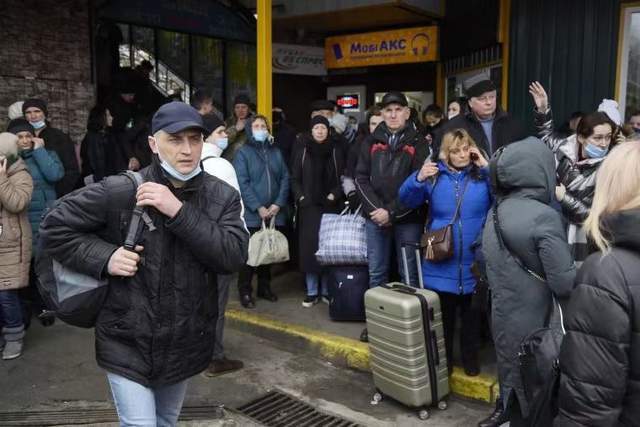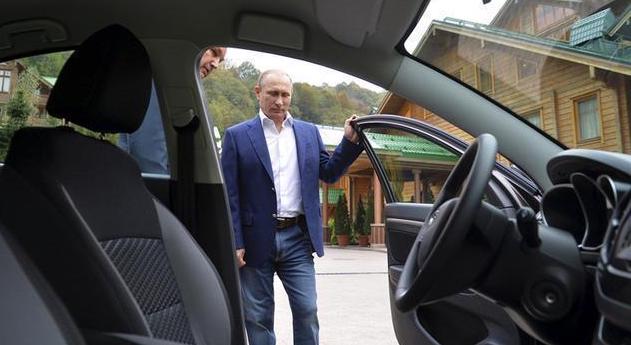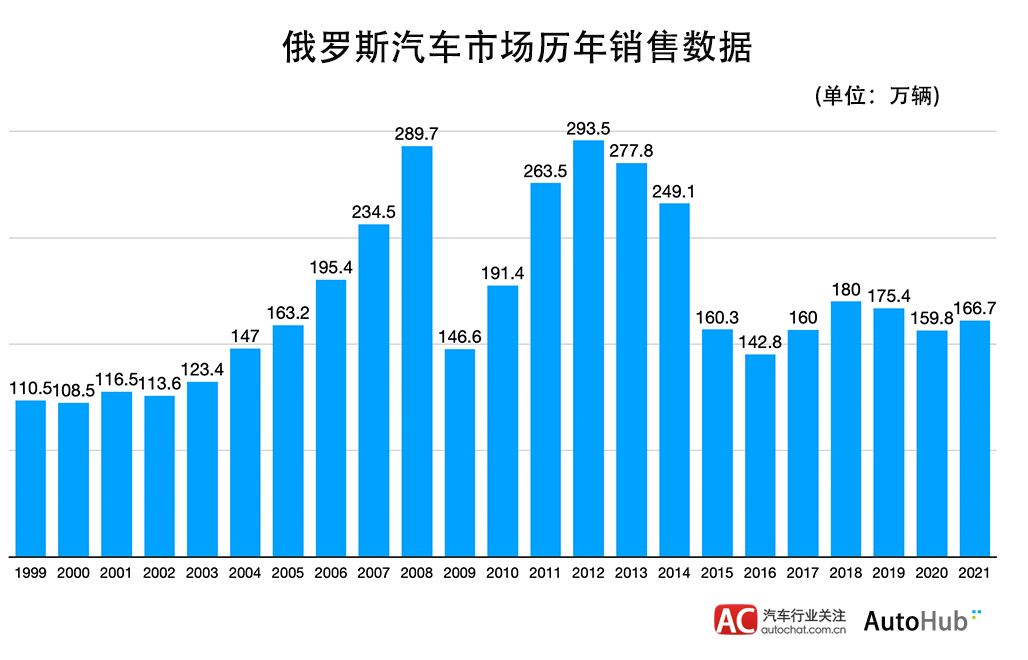In addition to Weibo, there is also WeChat
Please pay attention

WeChat public account
AutoBeta


2024-11-17 Update From: AutoBeta autobeta NAV: AutoBeta > News >
Share
AutoBeta(AutoBeta.net)02/28 Report--
Earlier, U. S. President Joe Biden repeatedly warned that Russia would wage war against Ukraine and gave a specific time. Although the start of the war was delayed, Russia officially invaded Ukraine on February 24, 2022. At present, although the two sides of the war have given some war damage data, but because the information is not transparent, it is not yet possible for the outside world to fully assess the situation of the war, but the war has posed a serious threat to the local political situation, the security and daily life of the local people. Recently, street fighting broke out in Kiev, the capital of Ukraine. Ukraine directly distributed weapons to ordinary people to participate in the war, and more than 300000 refugees fled to neighboring third countries.

In the early morning of the 25th Beijing time, the G7 unanimously agreed to impose sanctions on Russia, including cutting off Russian financing channels in western financial markets, freezing Russia's foreign exchange assets, freezing the assets of several banks that provide funds to the Russian military, and imposing technology export controls on Russia. The G7 members include the United States, the United Kingdom, France, Germany, Japan, Italy and Canada. The US president said he would not take part in the war directly, but provided financial and military assistance to Ukraine. As a result, the US capital market is generally stable.
On February 26th, Germany changed its position and agreed to provide defensive weapons to Ukraine. The United States and the European Union have announced that several Russian banks will be removed from the SWIFT international settlement system, which will expose banks and companies from other countries to the risk of sanctions for doing business with Russia. Therefore, the financial blockade imposed by Western countries on the Russian side will also have an important impact on the automobile industry in the region.
On December 31, 1999, Putin officially entered the Kremlin. A few years later, the local car market also began to grow at a high speed. Car sales reached 2.89 million in 2008, while AvtoVAZ, Russia's largest auto group, suffered a financial crisis and eroded its market share. Russia gives it a helping hand on the one hand and restricts the entry of some foreign brands on the other. At the beginning of the market growth, Russia's Zengjing offered preferential policies to foreign automakers. After more than three years of implementation, Russia halted the policy, terminated applications for assembly plants and fully implemented European Ⅲ emission standards, while some foreign countries that had previously entered the Russian market were also restricted.
At the end of 2012, Russia finally reached a restructuring with the Renault-Nissan alliance and formed a joint venture after rescuing its eldest son AvtoVAZ. Between 2011 and 2014, Russia mostly maintained annual sales of more than 2.5 million vehicles, which was a very attractive car market at that time. Analysts had expected the Russian market to overtake Germany to become Europe's largest single market in 2020.

In February 2014, Russia declared war on Ukraine for the first time, the Autonomous Republic of Crimea of Ukraine was merged into the Russian Federation, and Western countries began to impose sanctions on it. General Motors and Ford, the two major US automakers, withdrew from Russian passenger car manufacturing, while European car brands chose to stay. But Russian car sales have halved, reaching a low of 1.428 million in 2016, less than half of what they were before the war in 2012. At the same time, some Chinese brands have once again been able to enter the Russian market to invest in factories. By last year, sales of Chinese brands had increased to nearly 120000 vehicles, which is 1/3 of AvtoVAZ's LADA brand. Last year, 1.67 million cars were sold in Russia, while AvtoVAZ sold 350714 cars in Russia last year, while the best-performing Chinese brands Harvard and Chery sold 39126 and 37118 respectively in Russia last year.

Due to geographical factors, European car manufacturers will be directly affected. Some parts of Volkswagen are supplied by Ukrainian factories, which directly halted production at two Volkswagen plants in Germany. Volkswagen confirmed the news that the Zvico plant in East Germany would be idle for four days from next week, and the nearby Dresden plant would be closed for three days, and it was not clear how long the measure would last. This will reduce production at Volkswagen's German plant by 1200 vehicles a day, mainly affecting the production of Volkswagen's electric ID models, after Volkswagen had planned to transfer some of its workers from its Ukrainian plant to Germany.
Russia is also the investment location of many foreign automobile manufacturers, Volkswagen, BMW, Mercedes-Benz and so on have invested in setting up factories in Russia. Among them, Volkswagen's Kalu processing plant in southwest Moscow can produce 225000 cars a year, with about 4000 local employees. BMW's local joint venture, like brilliance, has just extended the joint venture agreement to 2028 and added new investment to expand production. Western sanctions will cause problems in the supply chain of these foreign manufacturers, thus causing some factories to limit production, both Volkswagen of Germany and Stellantis of France.
In terms of China's exports, according to customs data, China's auto exports in 2021 are destined for Belgium, Chile, Saudi Arabia, Australia, Bangladesh, Egypt, Chile and other countries. In the past, the proportion to Russia and Ukraine was small, but the annual export volume to Russia increased significantly last year. Chinese automakers exported a total of 42707 vehicles to Russia in 2020 and 122826 vehicles in 2021, worth about US $1.97 billion, while exports to Ukraine remain at the level of several thousand vehicles, and the industry will be affected by sanctions.
At present, the two sides have agreed to hold talks on the Belarusian border this afternoon, and Volkswagen also issued a statement saying, "Volkswagen hopes to quickly stop hostilities and resume diplomacy." We believe that sustainable solutions to conflicts can only be carried out on the basis of international law, "he said.
Welcome to subscribe to the WeChat public account "Automotive Industry Focus" to get the first-hand insider information on the automotive industry and talk about things in the automotive circle. Welcome to break the news! WeChat ID autoWechat
Views: 0
*The comments in the above article only represent the author's personal views and do not represent the views and positions of this website. If you have more insights, please feel free to contribute and share.











© 2024 AutoBeta.Net Tiger Media Company. All rights reserved.